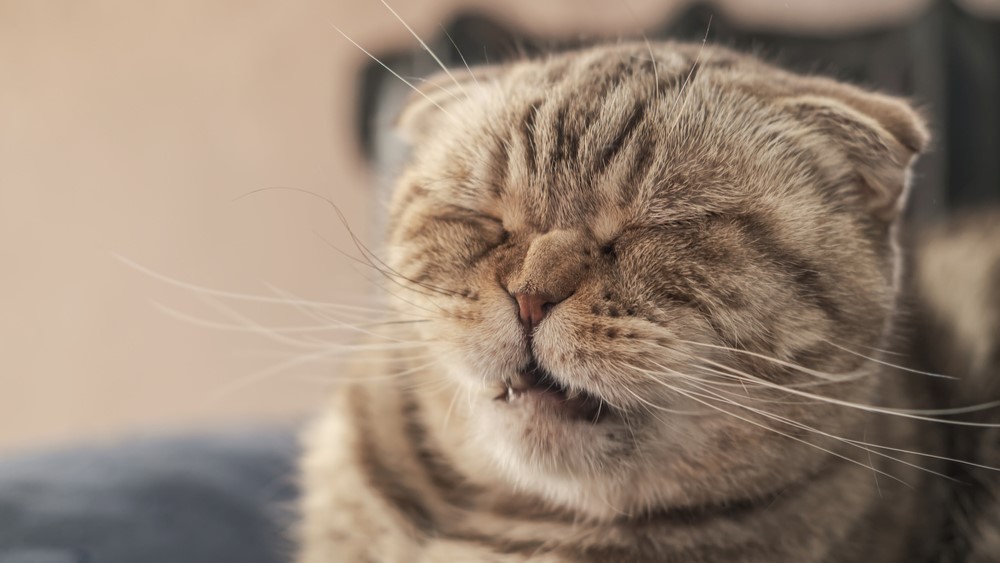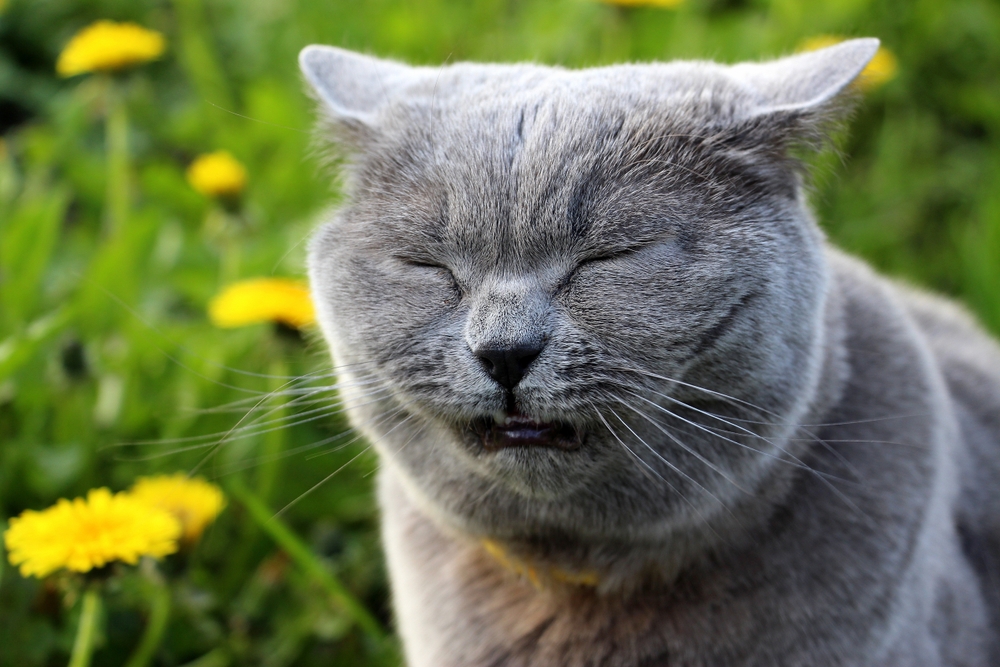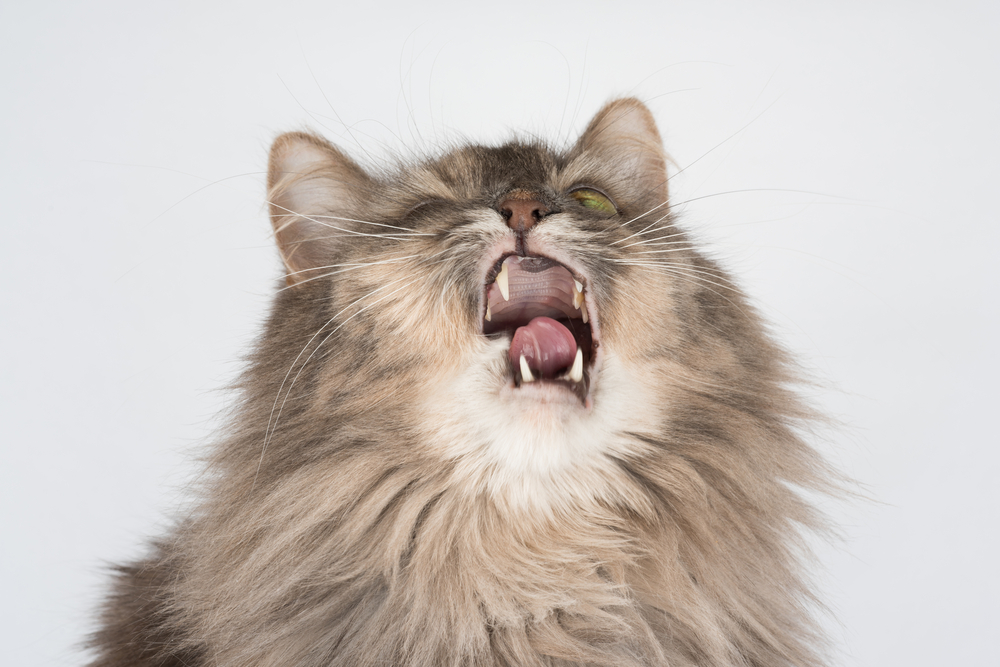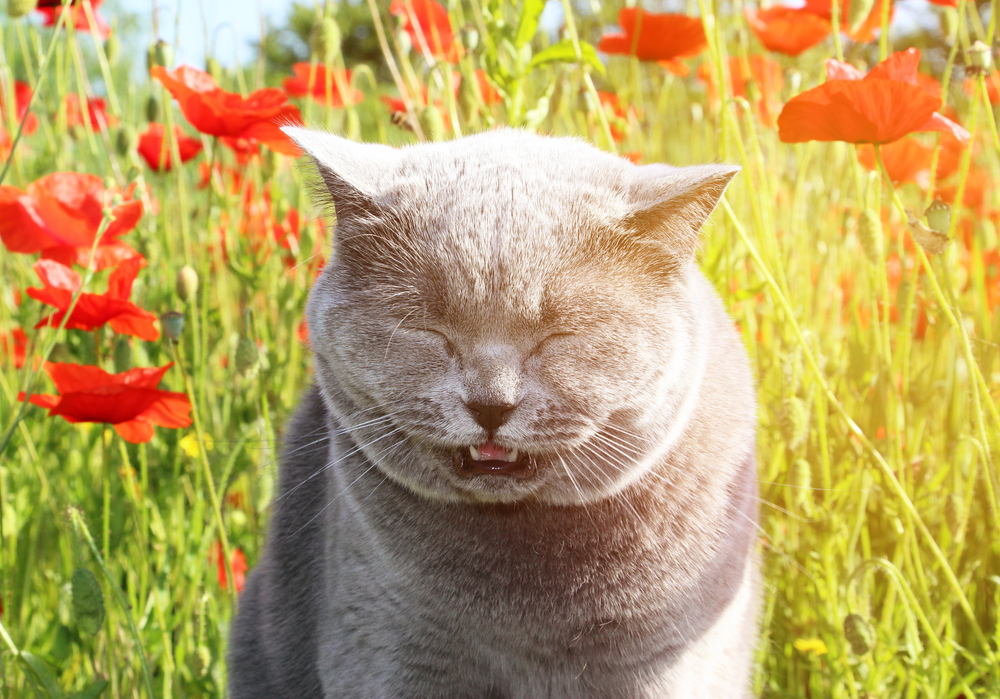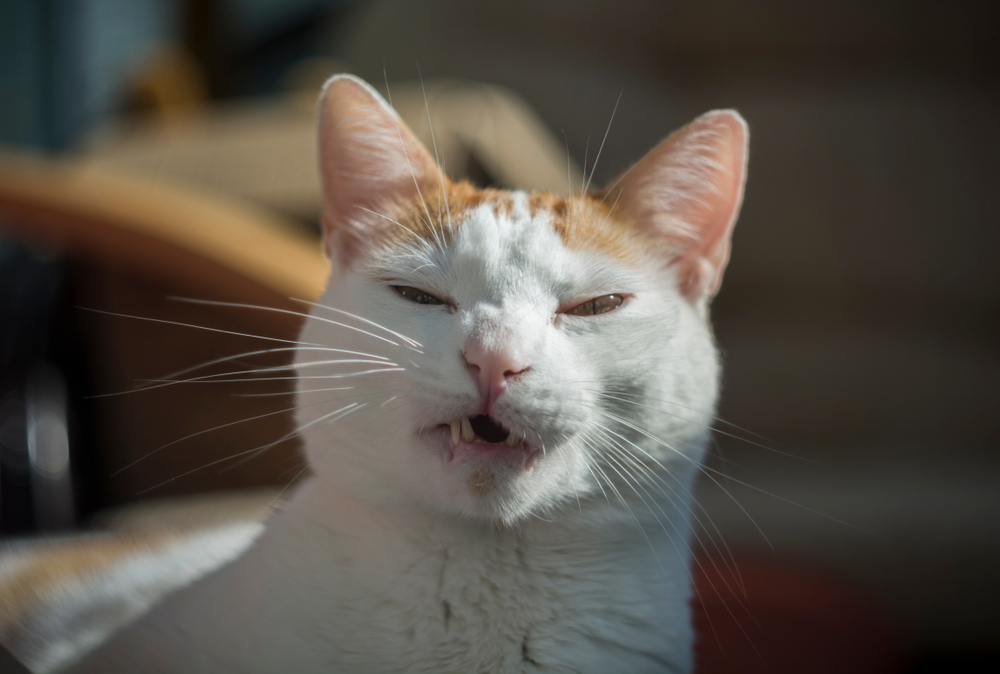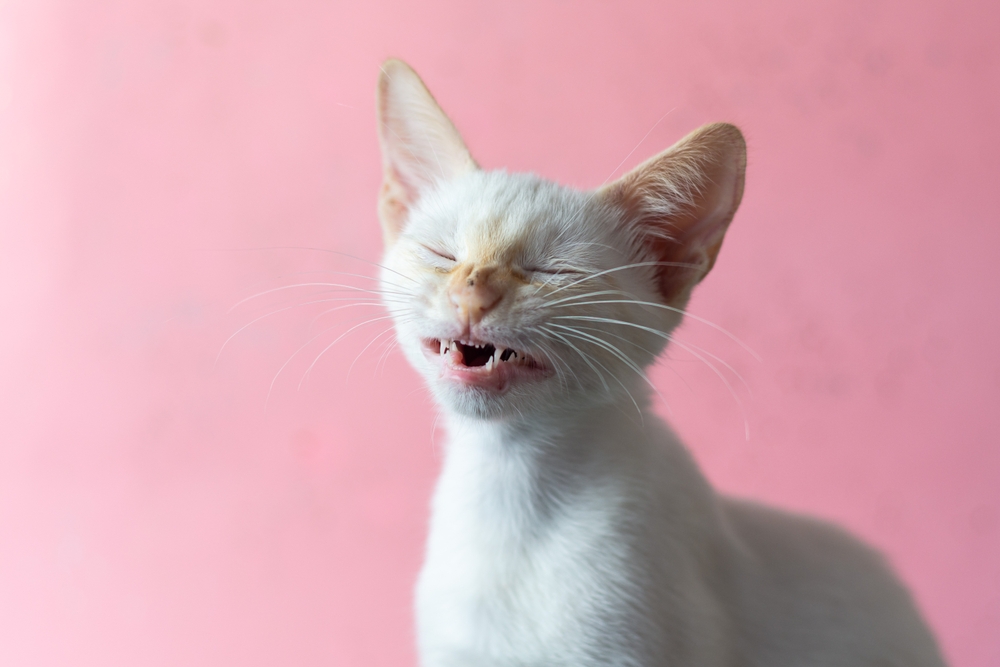📖 Table of Content:
“Bless you!” You realize that you’ve been saying this phrase all day long, and at this point, you’re starting to get worried. “Why is my cat sneezing so much? Does this mean she’s sick?”
As a person responsible for your cat’s health and happiness, you get worried each time you notice a change in her behavior. Now that she’s sneezing all the time, you can’t help but wonder if everything’s okay. Could it be that your cat is allergic to something?
Even though felines don’t develop allergies the same way humans do, there are still some things that could make them sneeze. The cause could be something completely harmless but there are still some serious conditions that could lead to this behavior.
So, you are worried about how serious things are when it comes to your cat. Is she sick or does she simply not approve of your new perfume?
Let’s find out what’s hiding behind the constant sneezing.
Why is my cat sneezing?
Even though your kitty looks adorable every time she closes her eyes and sneezes, you can’t ignore the fact that it’s been going on for a while. At this point, you’re getting worried as you’re not entirely sure if everything’s okay. Should you take her to the vet? Is there something in her environment that’s bothering her?
Sneezing can be a result of many different factors so let’s find out what could be the cause of it.
1. Nose tickle
We all know how uncomfortable it is to get a nose tickle. You keep sniffling and scratching your nose, trying to save yourself from the agony. That’s when your body comes to the rescue and makes you sneeze. After that, all of your troubles seem to be gone.
Well, the same could be happening to your kitty. She’s sneezing because she has to and there’s no serious cause behind it. In this case, you shouldn’t be worried. Your cat is perfectly fine, she’s just trying to deal with that nose tickle.
2. External factors
Maybe you don’t realize it, but your cat’s sense of smell is way stronger than yours. She may be sneezing because she can smell certain things that you can’t.
For example, she can smell the detergent you used to clean your floors even days after cleaning. She can smell the cinnamon spice you put in your cake mixture even though she’s in a completely different room. And she can definitely still smell the scented candle even though it hasn’t been burning for hours.
Any of these external factors could give your feline a sneezing fit. Even though these scents don’t seem overpowering to you, they’re way more intense for her since her sense of smell is so much stronger.
If you assume that this could be the reason why she keeps on sneezing, then try to air out the room and put away all the things that could irritate her senses. If you’ve recently bought a new cleaning agent, try not to use it for a while and see what will happen.
In case your cat’s sneezing stops, you can be sure that the main cause of it is the strong smell of some everyday items.
3. Inhaled irritants
When your cat inhales something irritating, she may start sneezing uncontrollably. This includes objects such as grass, hair, cat litter, or even dust. Even though she’s not actually allergic to any of these things, they irritate her nasal passages and make her sneeze.
By sneezing, she’s trying to get them out of her nose. Poor kitty, she’s struggling and she can’t let you know what’s going on. That must feel like a torture.
4. Tooth infection
Even though you may assume that dental issues have nothing to do with sneezing, there’s a chance that your feline is dealing with some kind of tooth infection. Infected or inflamed teeth can make the bacteria travel to the nasal area. As a result, your cat’s nasal passage gets blocked which then makes her sneeze.
If you notice that her dental gums are inflamed or that she’s avoiding dry food which she used to love, you should take her to the vet to check what’s going on. If she’s suffering from a teeth infection, your vet will give her medication that will ease the pain and eventually, stop the sneezing.
5. Upper respiratory infections
Now, this makes a lot more sense than a tooth infection since the nose is a part of the respiratory system. So, as soon as you notice that your cat can’t stop sneezing, chances are you’re going to suspect it has something to do with her respiratory organs.
Different respiratory infections can affect your feline but the most common one is Feline Herpesvirus or FHV. Would you believe that 80% to 90% of cats experience this health issue?
Sneezing is often one of the first symptoms but it’s not the only one. You’re also going to notice coughing or constant swallowing, discharge from the nose or eyes, lethargy, fever, and even enlarged lymph nodes.
All these symptoms suggest that you should take your cat to the vet and check what’s going on. It’s always better to be safe than sorry, so if you have a chance to prevent this condition before it develops, you should certainly do that.
6. Bacterial infection
“Why is my cat sneezing and mucus is appearing?”
Sneezing followed by yellow or green discharge from your cat’s nose or eyes could be a sign of a bacterial infection. It usually occurs when your cat’s immune system is already weakened by some other issue.
So, if your cat has recently been sick, and now she’s sneezing all the time and there’s this weird-looking discharge coming out of her nose, you should act accordingly and schedule an appointment with your vet.
You don’t want her condition to worsen so it’s always better to react when you notice that the symptoms aren’t going away, even after a couple of days.
7. Fungal infection
It seems like your cat is prone to different kinds of infections. From respiratory to bacterial and fungal, it can be hard to figure out what’s actually going on. But once you learn how to differentiate these health issues, it will be way easier to take the right steps and speed up the healing process.
Now, when it comes to a fungal infection, it doesn’t always result in sneezing. But certain types of fungus can cause this kind of reaction.
The best way to figure out if your cat is suffering from this infection is to take her to the vet who’s going to make all the necessary tests. Only then will you be sure what’s going on.
8. Tumor
This is the last thing you want to hear and it’s the most serious health issue that could lead to constant sneezing. If your cat has a nasal tumor, it can lead to irritations and make your feline sneeze a lot.
Now, you may already know the diagnosis in which case you’re already familiar with your cat’s condition. However, if you had her tested for all of the previous infections and you still can’t figure out what’s going on, then this is the one last test you should make.
First of all, pay attention to some other symptoms such as nasal discharge, noisy breathing, coughing, lethargy, and weight loss. These are some of the signs that your cat could have developed a nasal tumor.
It’s obvious that in this case, you don’t have time to waste. Take her to the vet as soon as possible and let him do a thorough check.
When is the right time to take your cat to the vet?
Now, there are a couple of things you can do before you decide to take your feline to the vet.
First of all, try to figure out if you’ve made any changes in the environment. Have you introduced any new foods to your cat? Or, have you changed her litter? Maybe you even started using a new cleaning product around your home?
Another important thing is to realize where the sneezing occurs. Have you noticed that it happens only in one room? Or does she keep on sneezing despite the environment?
If she starts sneezing as soon as she enters a certain room, then there must be something in there that’s the cause of her troubles. However, if it happens no matter the room and you’re sure that there’s no dust or any other irritants that could make her sneeze, then it’s time to take the next step.
Do you notice any other symptoms? In that case, you should schedule an appointment with your vet since he’ll be able to rule out any health issues. He’ll also run all the necessary tests and that’s the only way for you to find out what’s going on with your feline.
If you notice that her sneezing isn’t isolated and is usually followed by a nose discharge or coughing, for example, don’t wait for too long before you visit a vet. It’s better to react accordingly and that way, prevent the further development of your feline’s condition.
Remember, a healthy kitty is a happy kitty!
